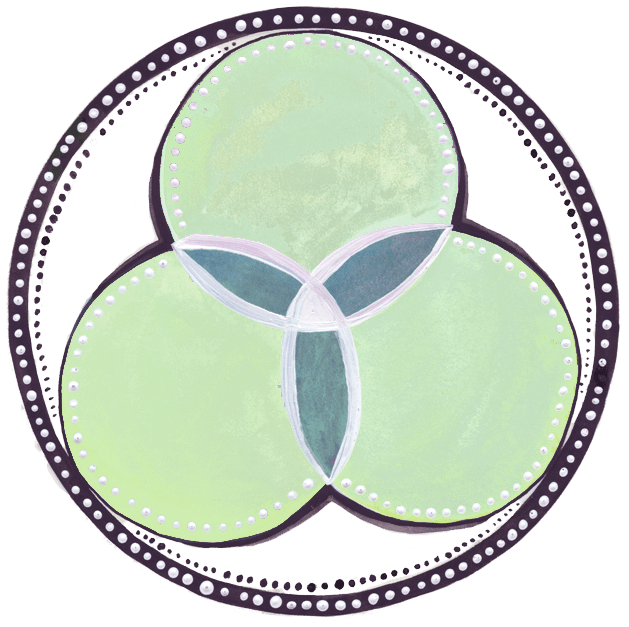Guest blog post written by Ashok Deniz with contributions from Amanda Alls, Chris McKenna, Kimberley Schulz, Christine Hennes and Samantha Young - all trainees from Rachel’s 200-hour Spring Yoga Teacher Training at Trilogy Sanctuary.
Earlier this spring, our spring yoga teacher training gathered at their local beach to participate in “Seva,” the Sanskrit word for “selfless service.” Equipped with gloves, bags (thank you Surfrider Foundation for inspiration and materials!) and lots of love, they began to collect discarded trash to help create a better environment for the community. The process inspired many interesting conversations (including some with curious onlookers) and meditations, some of which are shared below.
“THE CONCEPT OF SEVA IS DEEPLY INTERWOVEN IN THE TAPESTRY OF YOGIC PHILOSOPHY”
Seva is work performed without any thought of reward, and giving with no need to receive, solely for the sake of everyone involved. Blessed action, some might call it. As Rachel taught, the concept of Seva is deeply interwoven in the tapestry of yogic philosophy. A recurring theme of the yoga sutras is that of universal interconnectedness, which naturally leads to the idea of selfless service. The concept is also one of the central tenets of the classic text, the Bhagavad Gita. In a scene that plays out on what might be considered the battlefield of personal growth, Krishna counsels Arjuna that action be performed entirely without regard to the fruits of the action. The Gita also links this idea with the Yoga of Love (Bhakti yoga) and Karma Yoga, where life is lived to its fullest with a deep sense of love and surrender. Devotion and selfless service are also central messages of other philosophies. Martin Luther King himself stated that “service is the greatest form of spiritual practice.”
The gorgeous La Jolla oceanic context of the Seva was close to heart for many in the Vasantha YTT cohort. One noted that “I know for me, nature has always served as external connective tissue between head and heart, a fulcrum of balance in my life. It is my church, my place of surrender. I have always been drawn to it, learning early on growing up in Hawaii that the ocean is a life source and as such how important it is to care for it. The ocean provides us so many things. Along with sustaining our global ecosystems, she teaches how to dissolve into something complete and greater than anything we as humans can comprehend.”
The beach clean-up was therefore an ideal Seva opportunity for the tribe. Comments from tribe members included, “I am consistently striving to be environmentally aware, particularly regarding my consumption and generation of waste. I do this not for me but with the knowledge of the ocean as the sustainer of all things and with hope that some effort will benefit our mother, the Earth. Seeing trash at the beach and in the ocean to the degree that it exists is incredibly overwhelming and devastating.” and “Participating in seva, for the earth very generally and for the ocean more specifically, is in my opinion the least we can do. We owe it to her.”
“THE CONNECTIONS OF PEOPLE’S DAILY LIVES TO THESE INTRUSIONS AND ENORMOUS NEGATIVE IMPACT FOR THE OCEAN AND THE ENTIRE GLOBAL ECOSYSTEM BECAME MUCH MORE APPARENT”
As they picked up trash, the tribe became more aware of the broad extent of the problem. While it is usually obvious that there are sometimes large pieces of trash on the beach, it was the huge number of tiny pieces of plastic (microplastic) that was particularly eye opening and time-consuming to clean up. The connections of people’s daily lives to these intrusions and enormous negative impact for the ocean and the entire global ecosystem became much more apparent. As the tribe worked, some onlookers asked about what they were doing and thanked them for their efforts. Clearly, the Seva activity had increased awareness of the trash issue and need for action beyond tribe members alone.
“THE GREATEST THREAT TO OUR PLANET IS THE BELIEF THAT SOMEONE ELSE WILL SAVE IT”
At the end of the Seva, Rachel and the tribe formed an unbroken circle, sharing their thoughts and inspirations from the afternoon. As always inspirational, Rachel shared a very apt quote by Robert Swan "The greatest threat to our planet is the belief that someone else will save it", a vital call to continuing action. While tribe members felt proud that they had played a small part in helping with the beach trash problem, there was the general feeling that the impact of the activity had been far greater. The actions of the tribe and beachgoers, intentional and unintentional, have the potential to trickle down into day-to-day lives, adding to a community of people that are conscious of how they can help protect our planet. In a broader yogic context, sentiments included, “This opportunity not only improved the physical environment of the beach, it created a unique lesson on what yoga really is. It's not merely asana and OM mats, it's the ability to embody service in our actions and through our practice.” and “The experience made me realize that seva needs to be a part of my life--not just once in a while, but routinely, consistently. It's as much a part of living a good life as any other.” And last but certainly not least, “Thank you so much amazing Rachel for organizing and inspiring us with this humbling and remarkable experience!”
Thank you to the San Diego chapter of Surfrider Foundation for providing tools for our beach clean-up. Your dedication to spreading awareness and facilitating events within the community is a valuable and necessary resource that benefits our local beach communities and global preservation of our planet's oceans - learn more about the Surfrider Foundation.
If you’re interested in expanding your knowledge of Yoga beyond asana to cultivate a more yogic approach towards life, then learn more about Rachel and her upcoming 200-hour yoga teacher training this fall.




